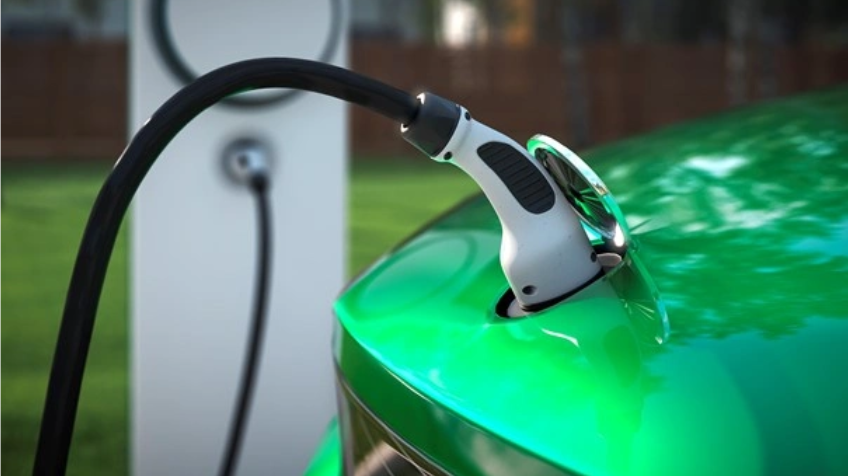Your electric car questions answered by our experts
Written by
Hannah Denton is a Strategic Sales Manager at Novuna Vehicle Solutions. In a previous role, she was the overall winner of Autocar's Great Women: Rising Stars 2021 award.
Tuesday 31st August 2021

With the ban on sales of new petrol and diesel cars being brought forward to 2030, buying an electric car now seems like a real option for many UK drivers.
While you can still buy a second hand conventionally fuelled vehicle, there’s never been a better time to consider making the switch to electric.
In this guide, we've answered all your questions on buying your first EV to help you make the decision making process a bit easier.
What’s the difference between an electric car and a hybrid car?
The answer is surprisingly simple – electric cars are powered purely by a rechargeable battery and a hybrid uses both battery power and traditional fuel e.g., petrol.
PEVs (Plug-in Electric Vehicle)
PEVs use electricity stored in a battery pack to power the car. The electric motor can also act as a generator; topping up the battery by regenerating electricity when the vehicle slows down or is put into reverse. The battery is recharged by connecting it to a charging unit.
Hybrid
Hybrid electric vehicles are powered by an internal combustion engine and an electric motor working together. They can’t be charged in the same as a PEV and instead, the battery is charged through both regenerative braking and the internal combustion engine.
Do electric cars have the same lifespan as petrol cars?
Electric cars are estimated to have a similar lifespan as their petrol or diesel cars counterparts, with the average longevity of 100,000 miles on one battery (depending on driving style and regular maintenance).
However, as there aren’t any modern electric cars which have reached the end of their life yet, we’ll have to wait a bit longer to find out.
Can I tow with an EV?
Towing using an electric car is possible, however your driving range is likely to significantly reduce depending on the weight of the load.
However, it’s not as bad as you first think as there’s no real difference to driving a petrol or diesel car, where your fuel economy becomes worse, the heavier the load you tow.
Top tip – Research your route beforehand to ensure that you have charging stations available to you on your journey.
Electric cars that can tow
- Tesla Model X SUV
- Audi E-tron
- Mercedes-Benz EQC SUVs
- Hyundai Ioniq 5
- Kia EV6
- Vauxhall Vivaro e-Life
Do EV batteries degrade the same as mobile phones?
You’ll be pleased to hear the degradation of EV batteries is an overstated problem and we have the evidence to back it up.
Since the launch in 2010, over 500,000* Nissan Leaf models have been sold worldwide and in that time, only 3* reported cases globally of battery failure have been recorded.
If you’re still worried about what happens to car batteries at the end of the vehicle’s life, there’s a growing demand for used car batteries which are used for renewable-energy storage. This means that there won’t be any further damage made to the environment.
Can I charge my electric car at any charging point?
There are two important factors you need to consider when charging your car on the road - the first is ensuring you have the correct charging lead and plug, the second is a suitable payment method.
Charging
For slow and ‘fast’ AC charging, your cable will have a plug for your car’s socket at one end (Type 1 or Type 2 – depending on your car) and as most public chargers are type 2, it’s best to go for this option.
For rapid DC, there are three kinds to be aware of: CHAdeMo which is just the trade name of a fast-charging method and used by Nissan, Combined Charging System (CCS) and Superchargers (Telsa).
Payment
Unlike when you pop into a petrol station or pay at the pump, you can’t just turn up at a charge post and pay. As there are several different national networks and local schemes, you usually need to have a registered account linked to the relevant app.
It may seem a bit of a faff but if you’re organised and do a little bit of planning, you won’t have any issues.
Can electric cars go as fast as non-electric cars?
Compared with previous years, today’s electric cars can rival some of the fastest petrol motors available on the market today.
Even though Tesla’s are amongst some of the fastest EVs ever made, the ever increasing selection of electric cars capable of hitting 60mph in well under five seconds – and in several cases under two seconds – is astounding.
How does the outside temperature affect range?
It may come as a surprise, but the weather conditions can affect your driving range. The perfect temperature is said to be at around 21.5 C where EVs preform at their best.
Interestingly enough, you can lose up to 54% of your range when temperate hit -15C (not something we have to worry about in the UK) meaning that if your car is meant to do 250 miles on a single charge, this will drop down to an average of just 135 miles instead!
Car loans and finance
If you want to get your hands on your very own electric car, we have low-cost car loans can help. You can borrow between £1,000 and £35,000 with competitive rates from as low as 7.4% APR Representative (£7,500-£25,000).



